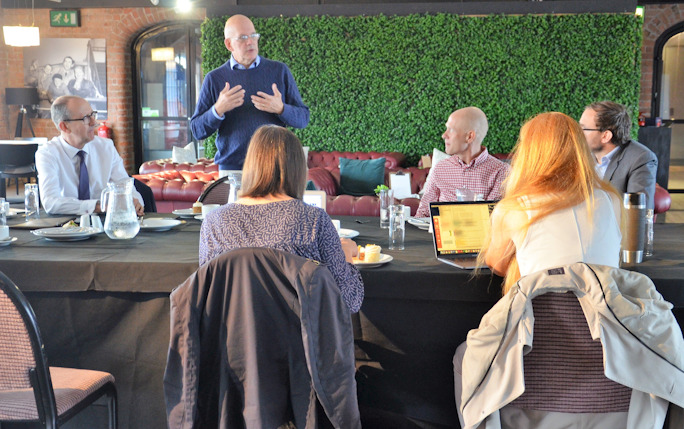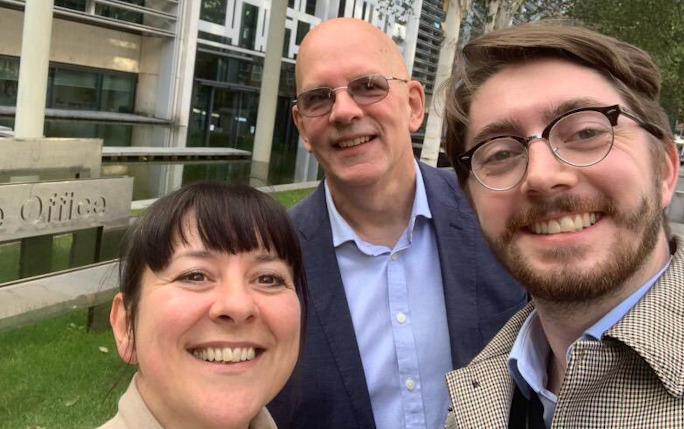Management School research helps tackle modern slavery

Anti-Slavery Day, 18 October 2019, provides an opportunity to raise awareness of human trafficking and modern slavery. Two Management School colleagues, Dr Jo Meehan and Dr Bruce Pinnington, are involved in this area of work, through a long term programme of research in collaboration with the Crown Commercial Service (CCS), the Home Office, and the Cabinet Office.
Jo and Bruce are extending their relationship with UK Government departments to understand how best to improve identify and tackle modern slavery outcomes through changed commercial practices. The Global Slavery Index reports that G20 countries collectively import $354 billion of ‘at-risk’ products per year. The lack of transparency in these complex supply networks leads to many businesses being unknowingly implicated in modern slavery.
Jo and Bruce are working with the CSS, the Home Office, and the Cabinet Office to understand how the policy ambition to identify and prevent modern slavery in businesses and their supply chains, outlined in Section 54 of the UK Government’s 2015 Modern Slavery Act, can be realised in practice. Central government is a powerful buyer in its own right, spending £118 billion per annum. In addition to its legislative role, it intends to demonstrate leadership through exemplary practice in its own commercial operations.
Collaborative projects to date include: an analysis of power and strategic ambiguity in the modern slavery statements of central government’s suppliers; a deep examination with three major construction companies to understand corporate attitudes and actions to tackle the issues in their supply chains; piloting the use of the Ethical Trade Initiative (ETI) framework to assess government’s key suppliers’ responses; and a review of Home Office commissioned reports to prioritise areas requiring government attention.
To support the research, Jo and Bruce are also engaging with the Chartered Institute of Procurement and Supply (CIPS), NGOs such as the ETI, Fifty Eight, and FLEX, and many academics including researchers at Lancaster, Manchester, Dublin, Greenwich and Jönköping Universities. Two PhD students, Nathan Davies and Olly Kennedy have recently joined the team and will lead some of the projects. Within the University, the team are collaborating closely with Professor Alex Balch through the Centre for the Study of International Slavery (CSIS). Locally, Jo sits on the reference group for the metro mayor’s Liverpool City Region’s Fair Employment Charter. In the new-year, the team start a research project for the Fairness and Social Justice Advisory Board (FASJAB) and the Combined Authority that aims to develop effective methods to improve modern slavery awareness and practice in businesses across the region.

Despite other recent events in the government, there remains broad cross-party support for the UK’s modern slavery initiative and planning is now underway to extend ULMS’s relationship with CCS and the Home Office as the longer-term programme is developed to ensure quality research that leads to a radical change in attitudes and practice relating to transparency in supply chains.